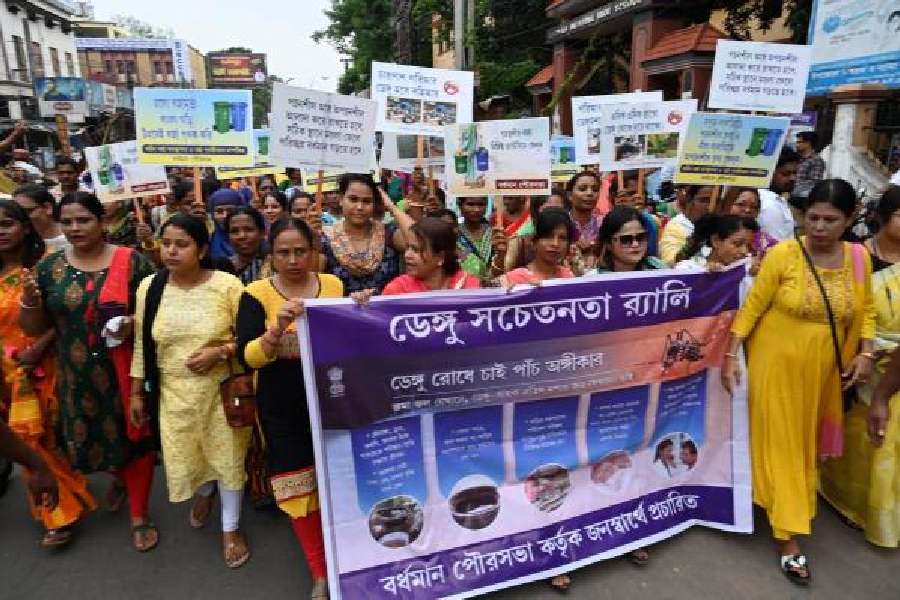The State Urban Development Authority (Suda) has launched a report card for every household in civic areas to ensure houses or apartments do not have breeding pockets of the Aedes aegypti mosquito that is a carrier of dengue.
Suda officials said each of Bengal’s 128 municipalities — the most densely populated parts of the state — has launched this report card. Members of the special dengue monitoring teams would visit households every week to assess the situation and make notes. They said the move would contribute to the destruction of breeding places for mosquitoes.
The report cards, called the Pouro Sathi (civic companion) Diary, are meant for use during weekly inspection visits by the teams during the July-December period when vector-borne diseases tend to be on the rise in Bengal in 2023 and 2024. While one part of the card, signed by the heads of the households, will be retained by the visiting teams, the other part, signed by the heads of the teams, will stay with the households.
Dengue is caused by a virus spread by the Aedes aegypti mosquito, which can breed in as little as even a spoonful of water lying undisturbed for at least a week.
“We are tightening the vigil, because there are some alarming signs. Breeding pockets must be identified and dealt with at once. Laxity will not be tolerated. We have instructions from the very top of the government,” said an official.
“The two sets of signatures will enable verification of inspection visit claims, if necessary. Hence, the documentation is bilateral,” the official added.
He further said that dengue prevention depends on how well-executed the integrated vector-control measures are, and the primary method of controlling the mosquito is by eliminating its habitats.
“Reducing instances of standing water is the most obvious method of control, which we are trying to ensure,” added the official.
The administration does not want a repeat of last year’s situation, when the Opposition attacked the Bengal government for its failure to address the health crisis as the dengue count crossed 42,000 in the state, the highest since 2017.
“Several deaths were reported in and around Calcutta over the past three weeks. The number of infections is rising. We have instructed visiting teams to be more proactive and to work on a war footing till the onset of winter,” said an official.
The state’s health department and Suda have issued a set of guidelines on the prevention and management of dengue that includes school-level awareness campaigns with rallies, leaflets and graffiti, and encouraging students to keep their homes clean. The guidelines also suggest personal protection measures against dengue.
Sources in the government said chief minister Mamata Banerjee, in charge of the health department, was keeping a close watch, along with the topmost tier of the bureaucracy and the state’s health administration, on the dengue situation. Chief secretary H.K. Dwivedi in his dengue review meetings is stressing the need for heightened alert.
In the Bengal Assembly last week, Mamata said the number of dengue cases in rural Bengal saw a sharp rise this year as most gram panchayats were unable to control the vector-borne disease because boards were yet to be formed after the July 8 rural polls. She said then that the number of dengue cases were highest in Nadia and North 24-Parganas, followed by Calcutta and Hooghly.











